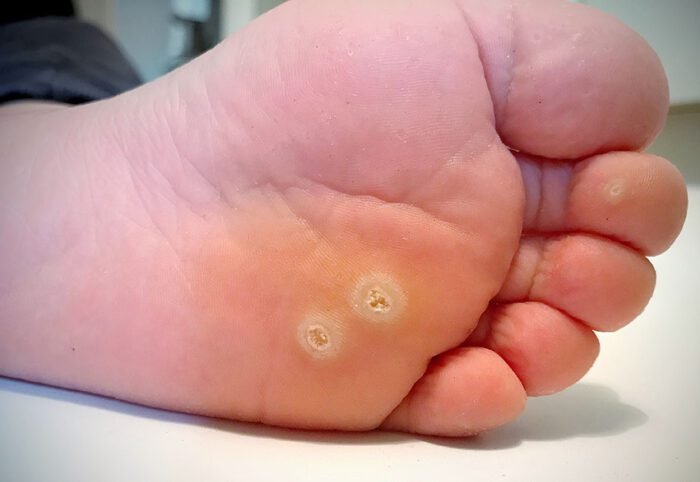 A study conducted by the Australasian College of Dermatologists revealed that over 4% of the Australian population suffers from skin problems. However, having 600+ dermatologists offering Eczema, Psoriasis, Melanoma, Vitiligo, Gorlin syndrome, Sunburns, palmar warts, and Plantar Warts treatment in Australia, the situation is far better than it was a few years ago. Here this article has been compiled to give you all the necessary information about the most common skin condition called Plantar Warts. Continue reading!
A study conducted by the Australasian College of Dermatologists revealed that over 4% of the Australian population suffers from skin problems. However, having 600+ dermatologists offering Eczema, Psoriasis, Melanoma, Vitiligo, Gorlin syndrome, Sunburns, palmar warts, and Plantar Warts treatment in Australia, the situation is far better than it was a few years ago. Here this article has been compiled to give you all the necessary information about the most common skin condition called Plantar Warts. Continue reading!
What are plantar warts?
Plantar warts are a kind of skin viral infection caused by human papillomavirus (HPV). As the name suggests, it grows on the plantar surface or the bottom of the feet. Plantar warts are small bumps or growths that appear on the feet’ heels or other weight-bearing areas. They are noncancerous but can be transmitted by direct skin-to-skin contact. Though anyone can get this infection at any age of their life, warts are most common in children and teenagers. Even athletes, dancers, swimmers, gymnasts are also likely to get this skin infection as they stay barefoot in communal areas.
Moreover, if you have an opening, cut, or crack in your skin or any other weak spots on the sole of your foot and you come in direct contact with an infected person, you are susceptible to getting the infection. Usually, warts aren’t a serious health concern and go away on their own or require some self-care treatments.
What are the signs and symptoms?
The signs and symptoms of these kinds of warts include:
- A small, bumpy, and grainy growth (lesion) on the sole of your foot. They can be singly or in clusters.
- The appearance of hard, thickened, yellowish skin (callus) with black pinpoints (called wart seeds)
- Pain or tenderness while walking or standing
What are the causes?
Human papillomavirus (HPV), which causes plantar warts, is ubiquitous and exists in more than 100 varieties. Out of them, some cause warts on soles of the feet, while others affect the different areas of the skin or mucous membranes. Moreover, not every person coming in contact with this virus develops warts. Each individual’s immune system reacts differently to HPV; even the family members’ bodies respond to it differently. This means the infection is not highly contagious, but remember, it thrives in moist and warm environments. That’s why it is said that it is likely to be transmitted by walking barefoot around the swimming pools or locker rooms.
How to treat this infection?
In many cases, warts will resolve naturally, but you may require medications and proper treatment in some. These are described as small warts (one or a few small, painless lesions), moderate warts (multiple, uncomfortable lesions), giant warts ( covering a larger part of your sole and causing significant pain and discomfort). Depending upon the severity and the type of the infection, your doctor will suggest the right treatment. A few methods to treat plantar warts are as follows:
- Use salicylic acid cream -a topical cream to be applied on the infected skin area, and it burns off the wart.
- Liquid nitrogen freezes off the wart.
- Medicines are applied to the infected area
- Curettage means cutting out the wart
- Laser therapy is used to burn the seeds of warts, which are actually blood vessels feeding the virus.
When to see a doctor?
You would need to see a doctor for Plantar Warts treatment in Australia, if-
- Your lesion is bleeding or is extremely painful
- Your lesion changes in color
- You have diabetes
- It is interfering in your day-to-day activities (walking or standing)
- You have tried home remedies for a while, but warts persist
- You are HIV positive or have any other immune system disorder




